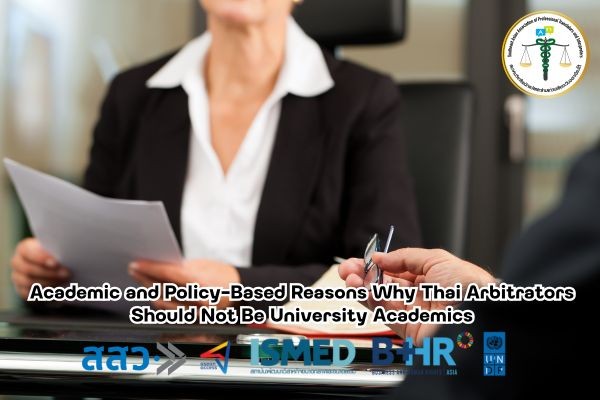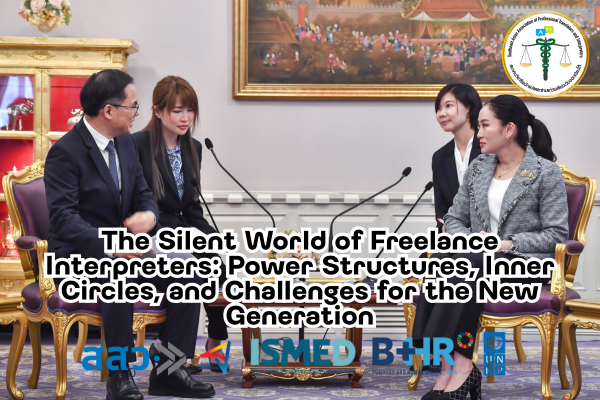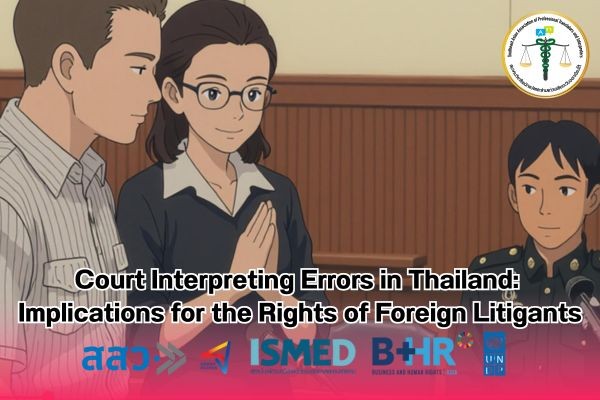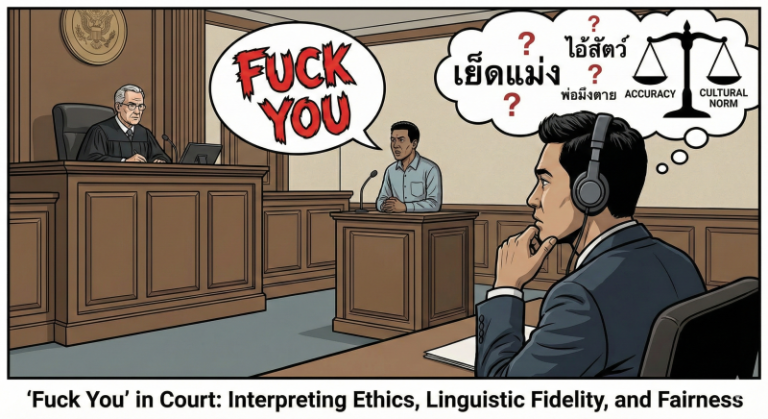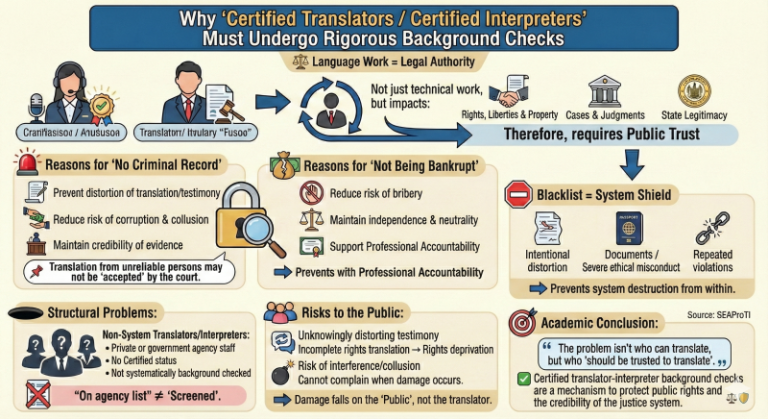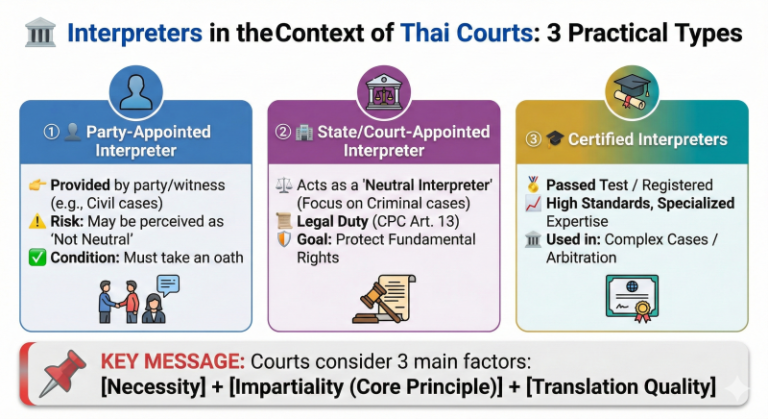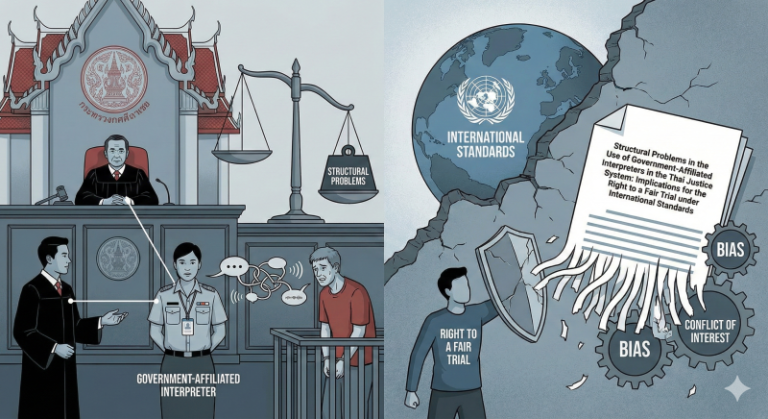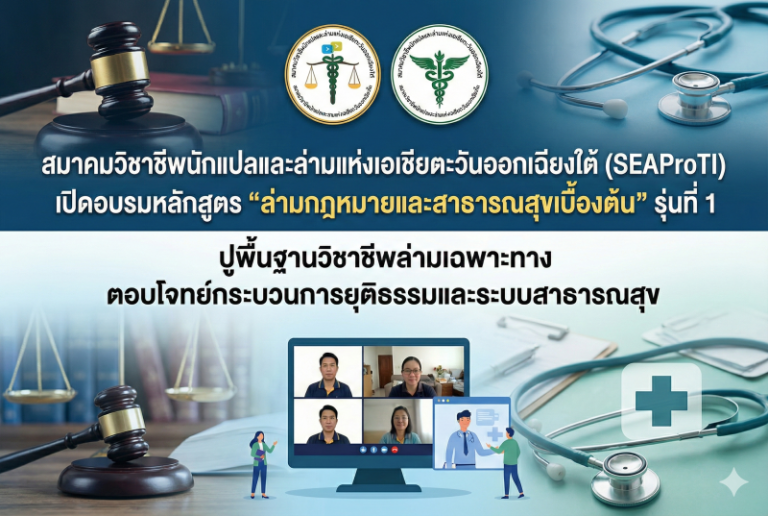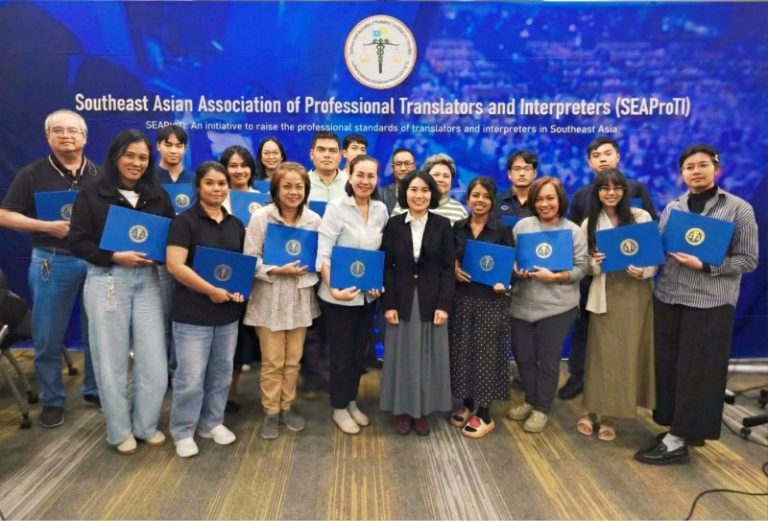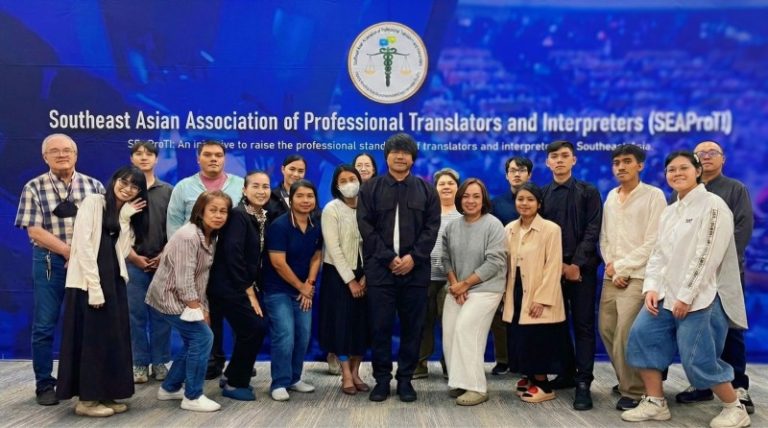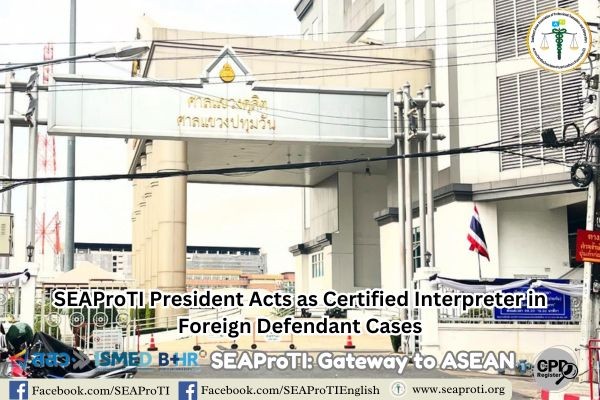Academic and Policy-Based Reasons Why Thai Arbitrators Should Not Be University Academics
8 May 2025, Bangkok – This article presents an academic perspective on the qualifications appropriate for arbitrators in Thailand, with a particular focus on the limitations of appointing university academics or lecturers to such roles. While these individuals possess deep theoretical and legal knowledge, they often lack the practical experience, neutrality, and efficiency required to maintain confidence in Thailand’s arbitration system. Drawing upon legal, procedural, and international standards, this paper outlines key concerns. It offers policy recommendations aimed at reforming the selection of arbitrators to enhance Thailand’s competitiveness and credibility in international dispute resolution.
1. Introduction
Arbitration plays a critical role in resolving private sector disputes, especially in international trade, investment, and major infrastructure projects. Therefore, the appointment of arbitrators must adhere to global standards of neutrality, expertise, and practical competence. In Thailand, however, the appointment of university academics and legal scholars as arbitrators remains common practice. This article argues that such appointments are often inappropriate and potentially detrimental, especially in international and complex cases.
2. Limitations of Academics in the Role of Arbitrator
2.1 Lack of Practical Experience in Dispute Resolution
While academics typically possess strong theoretical foundations, many lack real-world experience in business, contract negotiation, or transnational litigation. This gap in practical understanding may hinder their ability to fully grasp the commercial and factual context of disputes (Redfern & Hunter, 2009).
2.2 Rigid Doctrinal Thinking
Academics may adhere rigidly to legal theory or a specific school of jurisprudence, such as Civil Law or Common Law, at the expense of the flexibility often required in arbitration, where pragmatic solutions and equitable considerations frequently outweigh strict legalism (Born, 2021).
2.3 Risk of Conflicts of Interest
Many lecturers maintain institutional or consulting ties with private entities, state agencies, or international organizations involved in disputes. These relationships raise serious concerns about impartiality, especially if the academic has previously published opinions on related legal matters (Bühring-Uhle, 1996).
3. Consequences for Thailand’s Arbitration System
3.1 Delays and Inefficiency
University professors often carry heavy academic workloads, including teaching and research, which may impede their ability to manage arbitration proceedings in a timely and efficient manner.
3.2 Loss of International Confidence
When Thai parties nominate arbitrators who lack hands-on experience or whose profiles are perceived as too academic or politically entangled, international counterparts may question the professionalism and reliability of the Thai arbitration process. This undermines Thailand’s attractiveness as an arbitration venue (UNCTAD, 2020).
4. Policy Recommendations
Set minimum eligibility criteria for arbitrators, such as requiring five years of relevant dispute resolution experience and no conflicts with ongoing academic, governmental, or consultancy roles.
- Develop a national roster of professional arbitrators from diverse sectors beyond academia and public service.
- Encourage appointments from specialized professions such as engineering, project management, and international commerce to bring practical and technical insight to disputes.
- Implement performance evaluations for arbitrators to ensure procedural fairness, neutrality, and efficiency.
5. Conclusion
While university academics and legal scholars were once considered appropriate candidates for arbitration roles, today’s increasingly complex and globalized disputes require a new standard. The Thai arbitration system must evolve to favor seasoned professionals with practical experience, neutrality, and the ability to handle cases efficiently. This transformation is vital if Thailand is to strengthen its international credibility and become a competitive hub for arbitration in the region.
References
- Born, G. B. (2021). International Commercial Arbitration. Kluwer Law International.
- Redfern, A., & Hunter, M. (2009). Law and Practice of International Commercial Arbitration. Sweet & Maxwell.
- Bühring-Uhle, C. (1996). Arbitration and Mediation in International Business. Kluwer Law International.
- UNCTAD. (2020). Reforming Investment Dispute Settlement: A Stocktaking. Geneva: United Nations.
SEAProTI’s certified translators, translation certification providers, and certified interpreters:
The Southeast Asian Association of Professional Translators and Interpreters (SEAProTI) has officially announced the criteria and qualifications for individuals to register as “Certified Translators,” “Translation Certification Providers,” and “Certified Interpreters” under the association’s regulations. These guidelines are detailed in Sections 9 and 10 of the Royal Thai Government Gazette, issued by the Secretariat of the Cabinet under the Office of the Prime Minister of the Kingdom of Thailand, dated July 25, 2024, Volume 141, Part 66 Ng, Page 100.
To read the full publication, visit: the Royal Thai Government Gazette
เหตุผลทางวิชาการและนโยบายที่อนุญาโตตุลาการไทยไม่ควรเป็นนักวิชาการหรืออาจารย์มหาวิทยาลัย
8 พฤษภาคม 2568, กรุงเทพมหานคร – บทความนี้เสนอข้อพิจารณาเชิงวิชาการเกี่ยวกับคุณสมบัติที่เหมาะสมของผู้ดำรงตำแหน่งอนุญาโตตุลาการในประเทศไทย โดยเฉพาะการตั้งข้อสังเกตถึงข้อจำกัดในการแต่งตั้งนักวิชาการหรืออาจารย์มหาวิทยาลัยให้ดำรงตำแหน่งดังกล่าว แม้ว่าบุคคลเหล่านี้จะมีความรู้เชิงทฤษฎีและความเข้าใจทางกฎหมายอย่างลึกซึ้ง แต่กลับมีข้อจำกัดหลายประการที่ส่งผลกระทบต่อความเป็นกลาง ประสิทธิภาพ และความเชื่อมั่นของระบบอนุญาโตตุลาการไทย โดยบทความนี้จะเสนอเหตุผลจากมุมมองด้านนิติศาสตร์ กระบวนการยุติธรรม และมาตรฐานระหว่างประเทศ เพื่อส่งเสริมการปฏิรูปเชิงนโยบายในการแต่งตั้งอนุญาโตตุลาการของประเทศในอนาคต
1. บทนำ
ระบบอนุญาโตตุลาการมีบทบาทสำคัญอย่างยิ่งในการระงับข้อพิพาทภาคเอกชน โดยเฉพาะข้อพิพาทด้านการค้าระหว่างประเทศ การลงทุน และโครงการก่อสร้างขนาดใหญ่ ดังนั้นการแต่งตั้งบุคคลให้ดำรงตำแหน่งอนุญาโตตุลาการจึงต้องคำนึงถึงคุณลักษณะที่สอดคล้องกับมาตรฐานสากล ทั้งด้านความเป็นกลาง ความเชี่ยวชาญ และประสบการณ์ทางปฏิบัติ อย่างไรก็ตาม การแต่งตั้งนักวิชาการหรืออาจารย์มหาวิทยาลัยเป็นอนุญาโตตุลาการในประเทศไทยยังคงเกิดขึ้นอย่างต่อเนื่อง บทความนี้จึงเสนอข้อโต้แย้งเชิงวิชาการถึงความไม่เหมาะสมของแนวปฏิบัติดังกล่าว
2. ข้อจำกัดของนักวิชาการในบทบาทอนุญาโตตุลาการ
2.1 ขาดประสบการณ์เชิงปฏิบัติในการจัดการข้อพิพาท
แม้จะมีความรู้เชิงทฤษฎีที่เข้มแข็ง แต่นักวิชาการส่วนใหญ่มักขาดประสบการณ์ในภาคธุรกิจ การทำงานร่วมกับที่ปรึกษากฎหมาย และการเจรจาข้อพิพาทจริงในระดับสากล ซึ่งทำให้ไม่สามารถเข้าใจสภาพความเป็นจริงของข้อพิพาทได้อย่างลึกซึ้ง (Redfern & Hunter, 2009)
2.2 แนวคิดเชิงวิชาการที่เคร่งครัดมากเกินไป
บุคลากรในสถาบันการศึกษาอาจยึดมั่นในหลักวิชาอย่างเคร่งครัด ซึ่งอาจขัดกับธรรมชาติของกระบวนการอนุญาโตตุลาการที่ต้องการความยืดหยุ่น ความรวดเร็ว และการแก้ไขข้อพิพาทอย่างสมดุล ไม่ใช่การตีความตามตัวบทกฎหมายเพียงอย่างเดียว (Born, 2021)
2.3 ความเสี่ยงต่อผลประโยชน์ทับซ้อน
อาจารย์มหาวิทยาลัยจำนวนหนึ่งอาจมีความสัมพันธ์กับบริษัทเอกชน หน่วยงานรัฐ หรือองค์กรระหว่างประเทศที่เกี่ยวข้องกับข้อพิพาทโดยตรง ส่งผลให้เกิดข้อกังวลเรื่องความเป็นกลางของผู้ทำหน้าที่อนุญาโตตุลาการ (Bühring-Uhle, 1996)
3. ผลกระทบต่อระบบอนุญาโตตุลาการไทย
3.1 ความล่าช้าและประสิทธิภาพที่ลดลง
ภาระงานของอาจารย์ในด้านการสอน งานวิจัย และภารกิจทางวิชาการอาจส่งผลกระทบต่อความสามารถในการบริหารจัดการข้อพิพาทให้เป็นไปอย่างมีประสิทธิภาพและต่อเนื่อง
3.2 ความเชื่อมั่นของผู้ลงทุนต่างชาติ
การที่ฝ่ายไทยแต่งตั้งอนุญาโตตุลาการที่ขาดประสบการณ์จริงหรือมีบทบาทในภาครัฐหรือสถาบันการศึกษาอย่างเด่นชัด อาจสร้างความไม่ไว้วางใจให้แก่คู่กรณีต่างชาติ ซึ่งอาจส่งผลต่อความน่าเชื่อถือของประเทศไทยในฐานะสถานที่อนุญาโตตุลาการ (UNCTAD, 2020)
4. แนวทางเชิงนโยบายและข้อเสนอแนะ
กำหนดคุณสมบัติขั้นต่ำของอนุญาโตตุลาการ เช่น ต้องมีประสบการณ์ด้านการระงับข้อพิพาทอย่างน้อย 5 ปี และไม่อยู่ในตำแหน่งที่อาจขัดกับความเป็นกลาง
ส่งเสริมฐานข้อมูล “อนุญาโตตุลาการมืออาชีพ” ที่มีความหลากหลายทางวิชาชีพ ไม่จำกัดเฉพาะอาจารย์ นักกฎหมาย หรือข้าราชการ
เปิดรับอนุญาโตตุลาการจากภาคเอกชนและวิชาชีพเฉพาะด้าน เช่น วิศวกร นักบัญชี หรือผู้บริหารโครงการก่อสร้างที่เข้าใจข้อเท็จจริงเชิงเทคนิค
ใช้เกณฑ์การประเมินผลการทำหน้าที่ของอนุญาโตตุลาการ เพื่อให้มีระบบตรวจสอบคุณภาพและความเป็นธรรมอย่างต่อเนื่อง
5. บทสรุป
แม้การแต่งตั้งนักวิชาการหรืออาจารย์มหาวิทยาลัยเป็นอนุญาโตตุลาการจะเป็นแนวทางที่เคยเป็นที่ยอมรับในอดีต แต่ในปัจจุบันที่ข้อพิพาทมีความซับซ้อนและเป็นสากรมากขึ้น จึงจำเป็นต้องมีการทบทวนแนวปฏิบัติดังกล่าวอย่างจริงจัง ทั้งนี้เพื่อยกระดับระบบอนุญาโตตุลาการไทยให้สามารถแข่งขันและสร้างความเชื่อมั่นแก่คู่กรณีทั้งในและต่างประเทศได้อย่างแท้จริง
เอกสารอ้างอิง
- Born, G. B. (2021). International Commercial Arbitration. Kluwer Law International.
- Redfern, A., & Hunter, M. (2009). Law and Practice of International Commercial Arbitration. Sweet & Maxwell.
- Bühring-Uhle, C. (1996). Arbitration and Mediation in International Business. Kluwer Law International.
- UNCTAD. (2020). Reforming Investment Dispute Settlement: A Stocktaking. Geneva: United Nations.
เกี่ยวกับนักแปลรับรอง ผู้รับรองการแปล และล่ามรับรองของสมาคมวิชาชีพนักแปลและล่ามแห่งเอเชียตะวันออกเฉียงใต้
สมาคมวิชาชีพนักแปลและล่ามแห่งเอเชียตะวันออกเฉียงใต้ (SEAProTI) ได้ประกาศหลักเกณฑ์และคุณสมบัติผู้ที่ขึ้นทะเบียนเป็น “นักแปลรับรอง (Certified Translators) และผู้รับรองการแปล (Translation Certification Providers) และล่ามรับรอง (Certified Interpreters)” ของสมาคม หมวดที่ 9 และหมวดที่ 10 ในราชกิจจานุเบกษา ของสำนักเลขาธิการคณะรัฐมนตรี ในสำนักนายกรัฐมนตรี แห่งราชอาณาจักรไทย ลงวันที่ 25 ก.ค. 2567 เล่มที่ 141 ตอนที่ 66 ง หน้า 100 อ่านฉบับเต็มได้ที่: นักแปลรับรอง ผู้รับรองการแปล และล่ามรับรอง


